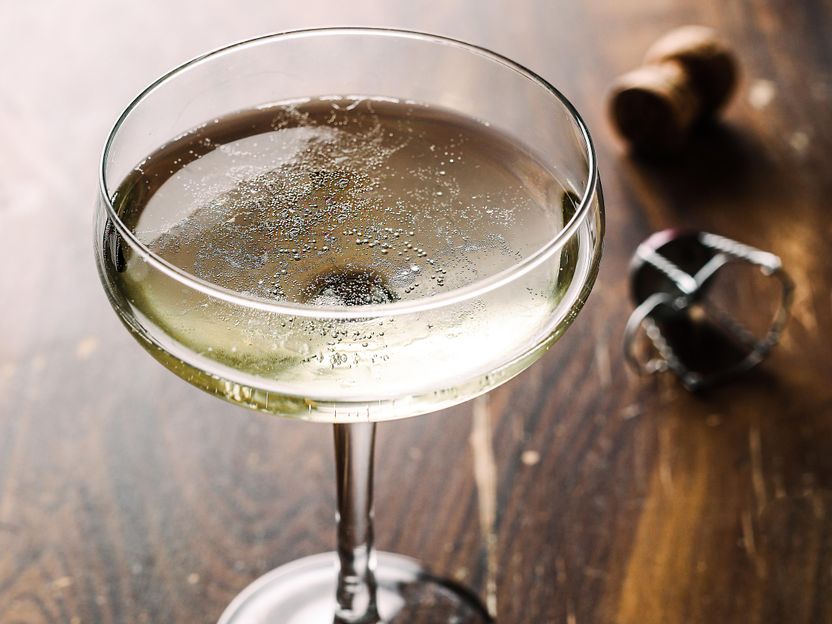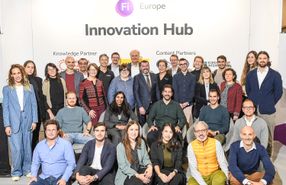Alcohol free enjoyment
Rotkäppchen-Mumm: pioneer thanks to unique technology
Advertisement
With its non-alcoholic sparkling wine, wine and gin, Rotkäppchen-Mumm is the top-selling producer on the market. The market leader relies not only on a wide range of products for the benefit of consumers, but also on high quality and unique technology for dealcoholization.
From sweet to fruity to tart: non-alcoholic sparkling wine, wine and gin from Rotkäppchen-Mumm promise incomparable enjoyment, and not just in terms of taste. They go with every season and are perfect for both special and everyday occasions. And so the credo is: non-alcoholic enjoyment does not have to be an alternative, but belongs to the first choice. In 2021, the market grew by double digits (+13.2%), confirming the trend[1]. "It has always been our claim for people who do not want to or cannot drink alcohol to develop alternatives that are in no way inferior to classic wine-based products. Our success proves us right: the non-alcoholic variants are currently winning across all age groups," knows Cathrin Duppel, Director Strategic Marketing & Digital at Rotkäppchen-Mumm. With sales of €31.7 million in 2021[2], Rotkäppchen-Mumm is the leading company in the non-alcoholic segment in Germany.
In 2008, the Rotkäppchen-Mumm company presented its first non-alcoholic innovation, promising the familiar and familiar enjoyment full of lightness: Rotkäppchen Alkoholfrei. Since the introduction of this sparkling beverage, the German sparkling wine market leader has been offering more and more ideal alternatives for connoisseurs who love sparkling wine and wine but want to consciously do without alcohol. In 2022, Rotkäppchen-Mumm's portfolio already includes four non-alcoholic sparkling wines, three wines and three Rotkäppchen Fruchtsecco varieties. Latest addition, in the current favorite color of consumers:inside[3]: Rotkäppchen Alkoholfrei Pinot Noir Rosé. The varietal wine has been available at retail since March 2022. "Especially for the summer months, a chilled rosé is the perfect companion. So it was obvious for us to also offer a non-alcoholic variant for consumers:inside. Now our range is a bit more colorful," says Cathrin Duppel.
Mocktails are in vogue

Photo by Louise Lyshøj on Unsplash
Non-alcoholic spirits are also gaining more and more fans [4]. The Rotkäppchen-Mumm group of companies includes Berlin-based BärenSiegel GmbH, which has developed an alcohol-free variant alongside its Humboldt Gin - Humboldt Freigeist. In a complex process, the aromas are extracted from the spices, herbs and roots used and prepared in such a way that Humboldt Freigeist can be used excellently as an alternative to gin. Pure or for cocktails, at home or in the bar: a tasteful benefit for all connoisseurs. For the second year in a row, Humboldt Freigeist was awarded a gold medal at the renowned Meininger's International Spirits Award (ISW) in spring 2022 for its distinctive taste.
Quality leadership thanks to a unique process
For Rotkäppchen-Mumm, quality has always been a top priority. This includes using the best technologies and processes. That's why the traditional company invested in a state-of-the-art dealcoholization process in 2015. In order to preserve the classic wine taste experience, Rotkäppchen-Mumm relies on the innovative and currently unique spinning cone technology in Germany's wine and sparkling wine industry at its Eltville site. At a high vacuum and around 35 degrees Celsius, the alcohol evaporates gently and the fine bouquet notes remain protected, so that the full flavor is retained and the alcohol content is reduced to below 0.5% by volume. The result: an alcohol-free beverage without compromise.
[1] IRI 2021
[2] IRI 2021
[3] IRI 2022: Rosé is currently showing the highest growth rates in the non-alcoholic wine segment. (Non-alcoholic grows overall YTD April 2022, esp. rosé with +44% sales/+38% Abs.)
[4] GfK 2021: Non-alcoholic spirits gain reach regardless of age group.
Note: This article has been translated using a computer system without human intervention. LUMITOS offers these automatic translations to present a wider range of current news. Since this article has been translated with automatic translation, it is possible that it contains errors in vocabulary, syntax or grammar. The original article in German can be found here.






























































